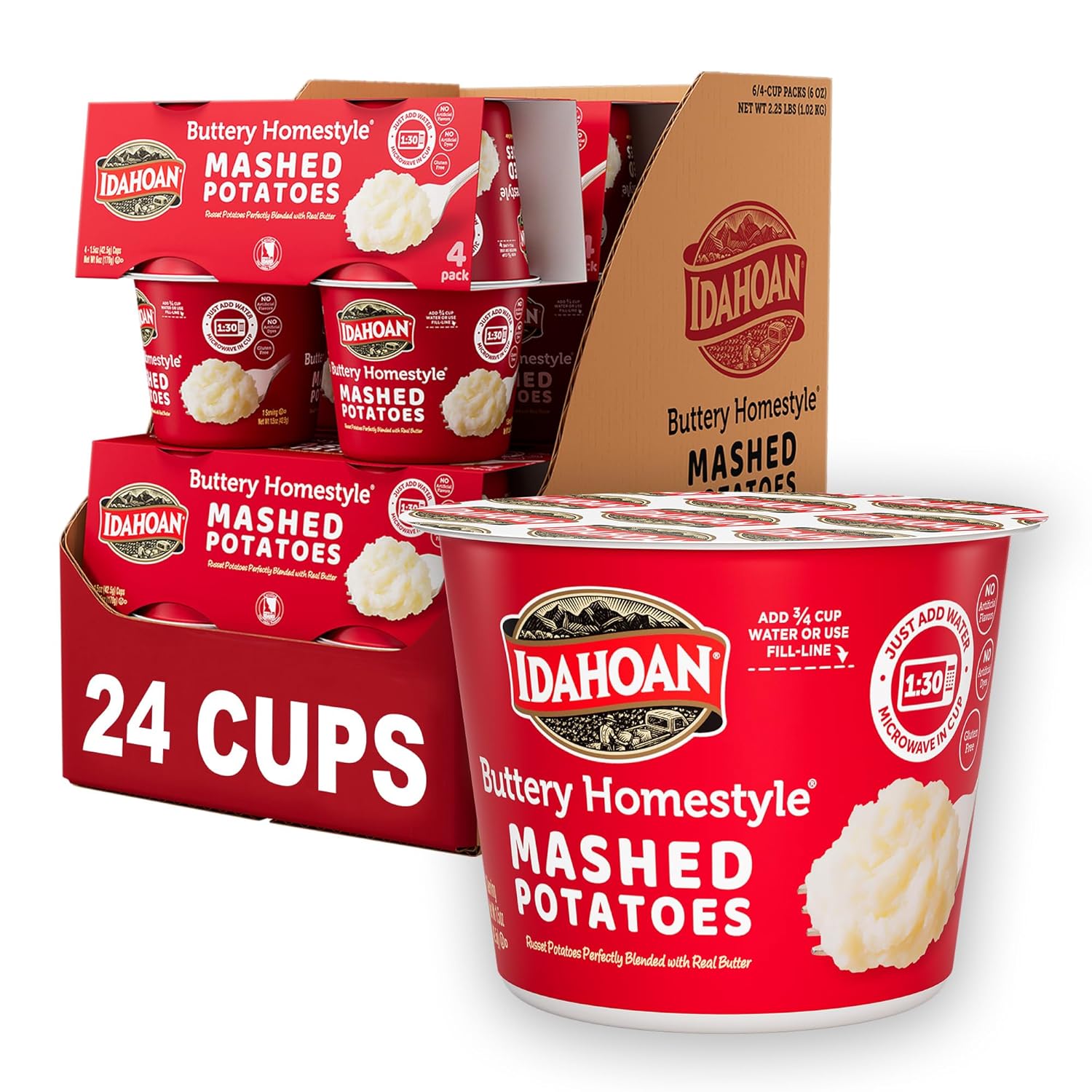







Price: $26.94
(as of Apr 11, 2025 00:03:52 UTC - Details)
The Best Potatoes for Mashed Potatoes: A Comprehensive Guide
Introduction
When it comes to making the creamiest, dreamiest mashed potatoes, the choice of potato is crucial. Not all potatoes are created equal, and knowing which ones are the best for mashed potatoes can make all the difference. In this guide, we’ll explore the best potatoes for mashed potatoes, including their unique qualities and why they stand out. Whether you're a seasoned chef or a novice cook, this article is here to help you elevate your mashed potato game. Let’s dive into the world of potatoes and discover the top varieties for creating the ultimate comfort food.
Understanding Potato Varieties
1. Starchy Potatoes: The King of Mashed Potatoes
Starchy potatoes, like Russet and Idaho, are often considered the gold standard for mashed potatoes. Why? They have a high starch content and low moisture, which makes them fluffy when cooked. When mashed, they create a light and airy texture that's hard to beat.
If you want to achieve creamy mashed potatoes that just melt in your mouth, choosing starchy potatoes is a no-brainer. Their consistency allows for easy blending, and they absorb butter and cream beautifully, enhancing their flavor and richness.
2. Waxy Potatoes: A Different Approach
Waxy potatoes, such as red or new potatoes, have a lower starch content and higher moisture. They tend to hold their shape better when cooked, making them ideal for salads and stews. However, when it comes to mashed potatoes, they can create a denser, creamier texture.
If you prefer a chunkier style of mashed potatoes, using waxy potatoes can offer a unique twist. Their earthy flavor adds depth, and with the right amount of seasoning, they can be just as delicious as their starchy counterparts.
3. All-Purpose Potatoes: The Versatile Option
All-purpose potatoes, like Yukon Gold, strike a perfect balance between starchy and waxy varieties. They are versatile and can be used for multiple recipes, including mashed potatoes. Yukon Golds are known for their buttery flavor and creamy texture, making them an excellent choice for those who want a rich taste without the fluffiness of starchy potatoes.
Using all-purpose potatoes allows you to experiment with flavors and textures. You can mix them with starchy potatoes for a more complex taste that still delivers on creaminess.
4. Organic vs. Conventional Potatoes: What’s the Difference?
When choosing the best potatoes for mashed potatoes, considering whether to go organic or conventional can make a difference. Organic potatoes are grown without synthetic pesticides or fertilizers, which can lead to a cleaner taste. They may also provide some nutritional benefits, as they tend to retain more nutrients.
While organic potatoes can be a bit pricier, many cooks swear by their superior flavor. If you’re concerned about chemicals and want to enhance your dish's taste, opting for organic can be worthwhile.
5. Local vs. Imported Potatoes: Freshness Matters
Freshness is key in any cooking, and potatoes are no exception. Local potatoes are often harvested at their peak and are likely to be fresher than imported varieties. Fresh potatoes retain their moisture and flavor better, resulting in tastier mashed potatoes.
When shopping for potatoes, consider visiting local farmers' markets or grocery stores that prioritize local produce. The difference in flavor can elevate your mashed potatoes to the next level.
6. Tips for Cooking Potatoes Perfectly
Now that you know which potatoes to choose, let’s discuss how to cook them for the best results. Start by peeling your potatoes (if desired) and cutting them into uniform pieces. This ensures even cooking.
Boil the potatoes in salted water until they're tender but not falling apart. Drain them well and let them sit for a minute to release excess moisture. This step is crucial for achieving the perfect texture.
7. The Role of Butter and Cream
When making mashed potatoes, the creaminess often comes from the addition of butter and cream. But how much should you use? The answer varies based on personal preference. Start with a few tablespoons of butter and a splash of cream, then adjust according to your taste.
For a healthier option, consider using chicken broth or even olive oil for a lighter mash. The key is to find a balance that suits your palate while enhancing the potato flavor.
Conclusion
In conclusion, when it comes to the best potatoes for mashed potatoes, starchy varieties like Russet and Idaho are top contenders, but don't overlook the unique qualities of waxy and all-purpose potatoes. Choosing organic and local options can also enhance flavor and freshness. Remember to cook your potatoes properly and adjust your butter and cream to achieve the perfect creamy texture. With these tips and insights, you’re well on your way to creating mashed potatoes that will impress everyone at the dinner table. Happy mashing!
Includes 24 (1.5 oz) cups
Made with 100% Real Idaho potatoes; No artificial colors or flavors
Naturally Gluten-Free potatoes perfectly blended with rich butter for a classic favorite
Easy and quick to prepare—simply add water and ready in minutes
Great to pair with any meat or vegetable for a wholesome family meal
